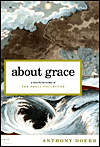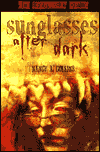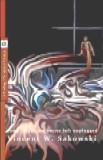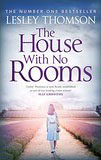
About Grace, by Anthony Doerr
Book Review by Jeff Edwards
Have you read this book?
David Winkler watches - sometimes in horror - while his dreams come true. As an eight-year-old,
Winkler is badly shaken when his vision of a man cut in half by a bus becomes reality. Years
later, after dreaming that he will cause his infant daughter to drown, Winkler flees his home and
family - and twenty-five years will pass before he returns.
In About Grace, Anthony Doerr takes readers on a journey from Alaska to Ohio to the Caribbean, and then back again. As Nathaniel Hawthorne once wrote, "[B]y stepping aside for a moment, a man exposes himself to a fearful risk of losing his place forever." Gone not for a moment but a quarter-century, David Winkler's effort to make his way back to Alaska to find his daughter becomes his own personal odyssey.
Doerr presents Winkler as a sympathetic character, but the man is clearly an eccentric protagonist. He falls in love with a married woman, and his love is more like obsession, his admiration from afar more like stalking: "He couldn't work, couldn't sleep, couldn't leave her alone." Winkler excavates his lover's boot print from the snow and preserves it in his freezer; he goes by her house every night, "patrolling [the street], up and back, up and back." Winkler is his own worst enemy: When he receives some bad news, he almost kills himself trying to cross a reef in a small rowboat. And after intruding on a woman in her home and being chased away, Winkler overreacts, ending up injured and lost in the woods for more than a week, barely surviving on a meager supply of food.
Although the literary elite might shudder at the thought, Doerr's About Grace and Stephen King's "The Dead Zone" are cut from the same cloth. In each novel, a man suffers from precognitive visions and struggles to decide how far he should go in order to prevent the tragedy that he foresees. In "The Dead Zone," John Smith holds in his hands the fate of the nation - even the world - when he "sees" that a rising politician will cause Armageddon. About Grace is a more intimate story, with David Winkler wanting only to prevent the death of his child. Both Smith's and Winkler's outward appearances eventually reflect their inner turmoil: Smith's constant suffering gnaws at him until he is a haunted, haggard young man; Winkler cringes at his own image in motel mirrors: "a gaunt, white-haired stranger..., twin ladders of ribs up his sides, a face pinched by glare, permanent hollows beneath his eyes."
Similar to the way that Russell Banks likened shifting land masses to human movement in his novel "Continental Drift," Doerr meditates on a natural world suffused with meaning, representing our own lives ("Water was a wild, capricious substance: nothing solid, nothing permanent, nothing as it appeared"). Readers will linger over passages in Doerr's book, marveling at the way he weaves thoughts and imagery into a tapestry of mesmerizing power: When the author describes "frost...making tiny connections," then defines dreams as "narratives concocted by a cerebral cortex...to organize its memories," readers may find themselves picturing memories linked together like frost on a window pane.
A character in About Grace thinks, "Growing up meant burying possibilities, one after another." But through his work, Anthony Doerr negates this pessimistic view: His growing prowess as a writer promises unlimited possibilities for engaging stories full of rich prose.
In About Grace, Anthony Doerr takes readers on a journey from Alaska to Ohio to the Caribbean, and then back again. As Nathaniel Hawthorne once wrote, "[B]y stepping aside for a moment, a man exposes himself to a fearful risk of losing his place forever." Gone not for a moment but a quarter-century, David Winkler's effort to make his way back to Alaska to find his daughter becomes his own personal odyssey.
Doerr presents Winkler as a sympathetic character, but the man is clearly an eccentric protagonist. He falls in love with a married woman, and his love is more like obsession, his admiration from afar more like stalking: "He couldn't work, couldn't sleep, couldn't leave her alone." Winkler excavates his lover's boot print from the snow and preserves it in his freezer; he goes by her house every night, "patrolling [the street], up and back, up and back." Winkler is his own worst enemy: When he receives some bad news, he almost kills himself trying to cross a reef in a small rowboat. And after intruding on a woman in her home and being chased away, Winkler overreacts, ending up injured and lost in the woods for more than a week, barely surviving on a meager supply of food.
Although the literary elite might shudder at the thought, Doerr's About Grace and Stephen King's "The Dead Zone" are cut from the same cloth. In each novel, a man suffers from precognitive visions and struggles to decide how far he should go in order to prevent the tragedy that he foresees. In "The Dead Zone," John Smith holds in his hands the fate of the nation - even the world - when he "sees" that a rising politician will cause Armageddon. About Grace is a more intimate story, with David Winkler wanting only to prevent the death of his child. Both Smith's and Winkler's outward appearances eventually reflect their inner turmoil: Smith's constant suffering gnaws at him until he is a haunted, haggard young man; Winkler cringes at his own image in motel mirrors: "a gaunt, white-haired stranger..., twin ladders of ribs up his sides, a face pinched by glare, permanent hollows beneath his eyes."
Similar to the way that Russell Banks likened shifting land masses to human movement in his novel "Continental Drift," Doerr meditates on a natural world suffused with meaning, representing our own lives ("Water was a wild, capricious substance: nothing solid, nothing permanent, nothing as it appeared"). Readers will linger over passages in Doerr's book, marveling at the way he weaves thoughts and imagery into a tapestry of mesmerizing power: When the author describes "frost...making tiny connections," then defines dreams as "narratives concocted by a cerebral cortex...to organize its memories," readers may find themselves picturing memories linked together like frost on a window pane.
A character in About Grace thinks, "Growing up meant burying possibilities, one after another." But through his work, Anthony Doerr negates this pessimistic view: His growing prowess as a writer promises unlimited possibilities for engaging stories full of rich prose.
|
Click here to buy About Grace, by Anthony Doerr on Amazon
|
About Grace, by Anthony Doerr on Amazon

| More Books You Might Like |
Comment on About Grace, by Anthony Doerr
| Comments on About Grace, by Anthony Doerr |
| There are no comments on this book. |




